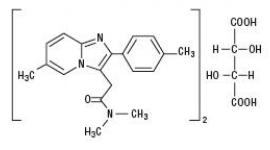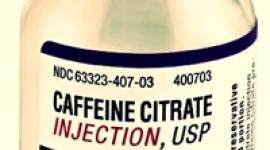Treatment of ADHD and Sleep Disorders

Both adults and children with ADHD can develop sleep problems. Info on self-help, as well as medication treatment of ADHD and sleep disorders.
Self-Help Treatment of a Sleep Disorder with ADHD
Parents should consult a doctor to rule out physical factors like asthma, enlarged tonsils or allergies which could be affecting a child's sleep. Once these are ruled out, lifestyle changes, ADHD medication schedule changes or additional medication is typically used in the treatment of a sleep disorder. Of particular import to ADHD children with sleep problems:
- Maintaining a rigorous daily routine - while adults also benefit from routine, it is even more important for children to have the same sleep, wake, meal and activity times every day.
- Monitoring a child's diet - caffeine is most critical to eliminate from a child's diet, but sugar should also be reduced, particularly in the evening.
- Giving your child a hot bath before bed - sleep normally occurs when the body cools and having a hot bath can set this process in motion.
- Avoiding sleep medications - if possible, should be avoided.
Adults also benefit from developing good sleep habits and rigorously sticking to a bedtime routine. For people with ADHD, this routine is individual as some need absolute silence to sleep, while others require white noise; some need a snack before bed, while others can't eat anything before sleep. Trial and error must be used to select the best routine for each person. Universally though, bedtime must be the same every night and naps are to be avoided. Sleep also has to be made a priority, possibly with an alarm set to remind the individual to get into bed and go to sleep.
Medication Treatment of a Sleep Disorder with ADHD
Stimulant-class medication is typically used to treat both children and adults with ADHD. Taking this medication 45 minutes before sleep may help someone with ADHD fall asleep and create a better quality of sleep. While stimulants would normally keep a person awake, some with ADHD find it calms their mind, as it does throughout the day, and this calm allows them to sleep.3
Alternately, some find just the opposite and have to take prescribed stimulant medication far from bedtime. Shorter-acting ADHD medication may also help to improve sleep.
Stimulant medication may also help in the waking process. A person with ADHD can set an alarm about an hour before the desired wake time. When the alarm sounds, they take an initial dose of medication and go back to sleep. A second alarm sounds in an hour when the ADHD medication is reaching its peak blood level, allowing the person to fully get out of bed.3
Sleep disorders may also be treated with additional medications. Common include:
- An antihistamine like Benadryl (over-the-counter)
- Melatonin
- Periactin
- Clonidine
- Trazodone
- Mirtazapine
References:
1Dodson, William M.D. ADHD Sleep Problems: Causes and Tips to Rest Better Tonight! ADDitude. Feb/March 2004 http://www.additudemag.com/adhd/article/757.html
2No listed author Attention Deficit Hyperactivity Disorder: ADHD in Adults WebMD. Accessed Aug. 10, 2010 http://www.webmd.com/add-adhd/guide/adhd-adults
3No listed author Attention-Deficit/Hyperactivity Disorder: Symptoms of ADHD WebMD. Accessed Aug 10, 2010 http://www.webmd.com/add-adhd/guide/adhd-symptoms
4No listed author ADHD and Sleep Disorders WebMD. Accessed Aug. 10, 2010 http://www.webmd.com/add-adhd/guide/adhd-sleep-disorders
5Peters, Brandon M.D. The Relationship Between ADHD and Sleep About.com. Feb. 12, 2009 http://sleepdisorders.about.com/od/causesofsleepdisorder1/a/ADHD_Sleep_2.htm
APA Reference
Tracy, N.
(2019, September 8). Treatment of ADHD and Sleep Disorders, HealthyPlace. Retrieved
on 2025, December 23 from https://www.healthyplace.com/other-info/sleep-disorders/treatment-of-adhd-and-sleep-disorders


